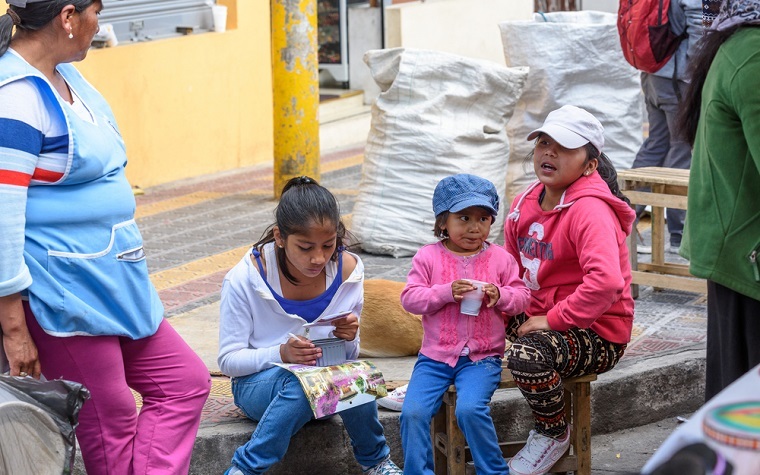Following years of economic improvement in Latin America in which nearly 100 million people rose above poverty, the decade of the “hyper presidents” has become the decade of “hyper participation” with greater citizen empowerment and demands, according to recent conclusions of Latinobarometro, a Chile-based think tank that annually surveys 18 countries in the region.
The Chile-based Corporacion Latinobarometro, which has carried out annual surveys for the past two decades and discussed the region´s trends during a conference this week in Santiago, said in its most recently released annual report that while citizens may have made progress, many feel it has been “too little, too late.”
“Starting in 2003, the region benefited from the super cycle of commodities," the report said. "Specifically the great demand from China for Latin American raw materials which pushed up regional exports of goods from $352 billion in 2002 to a maximum of $1.1 trillion in 2012.”
This allowed many countries in the region to expand without having to incur in heavy debt burdens as it had occurred in the past. Countries also used the bigger revenues to accumulate reserves and service their debt.
The region´s unemployment rate declined from 11.1 percent in 2002 to 6
percent in 2014, Latinobarometro´s report said. Poverty levels, which were 45
percent in the mid-1990s, fell to 12
percent by 2014, it added.
Along with this increase in employment levels, Latin American citizens were able to get more access to credit which, in turn, pushed their buying capacity. This fueled internal demand and economies.
All these improvements, which resulted mostly from the impact of high commodity prices, resulted in big popularity of presidents for a period that is already over, Latinobarometro said.
“In the years following the Asian crisis between 2002 and 2008, Latin America not just experienced sustained growth but its governments enjoyed their highest approval ratings, with as many as eight presidents with more than 69 percent approval (in 2009),” according to Latinobarometro.
This period is clearly over as the average approval rates fell to 47 percent in 2015.
“In 2015 we have eight presidents with less than 40 percent approval, while in 2009 there were only three,” the study said.
At this time, the region is already feeling the impact of the deceleration in China that has gone on over four years. However, even as the economies in the region are sharply slowing down or contracting, citizens' demands for improvements go on, leading to more protests.
“At the start of the 2010 decade these citizens started to go out in the streets to protest,” it said.
The willingness to protest “is nothing else than an important advance, although partial, of civilian and social rights improvement,” during the expansion years, Latinobarometro said.
Latin citizens also feel that they were let down as their expectations for a sustained improvement to continue for more years is not happening.

 Alerts Sign-up
Alerts Sign-up